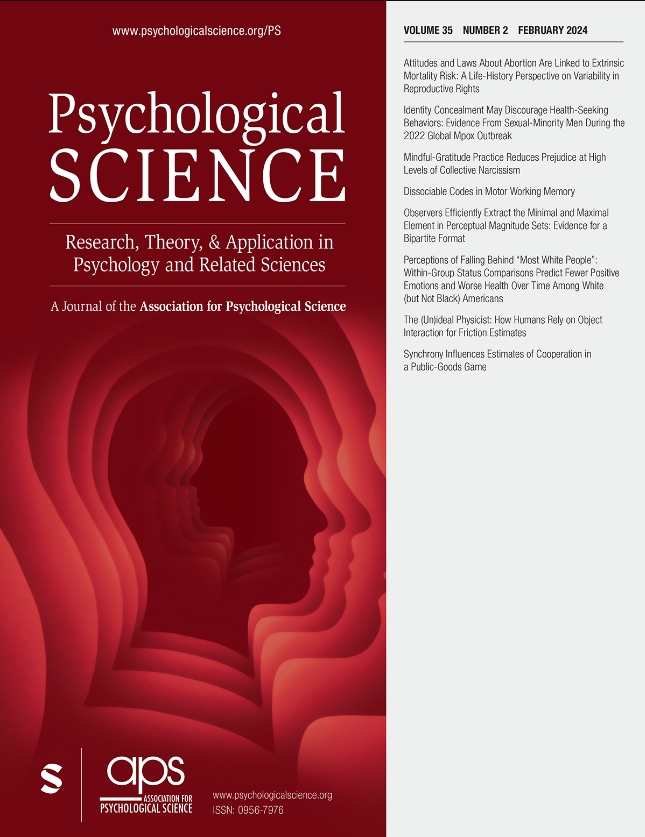从多层次模型中得出可推广的结论:评论
IF 4.8
1区 心理学
Q1 PSYCHOLOGY, MULTIDISCIPLINARY
引用次数: 0
摘要
在最近发表的一篇文章中,Van de Calseyde 和 Efendić(2022 年)认为,当人们在进行第二次估计之前,被指示采用与他们意见相左的人的观点时,内部人群智慧(即相对于一个人的单一初始估计,通过汇总一个人的两次估计而减少的误差)会得到增强。在此,我将对范-德-卡尔塞德和埃芬迪奇的数据进行重新分析,并指出支持他们主要观点的证据来自反保守的多层次模型。具体来说,Van de Calseyde 和 Efendić 通过随机截距模型评估了他们的数据,但没有考虑到实验条件在项目层面的影响。这种方法通常允许分析人员获得多层次模型所增强的统计能力,而不对这种能力进行适当的检验;在这种情况下,低估项目水平的方差似乎导致了透视法的虚幻好处。本文章由计算机程序翻译,如有差异,请以英文原文为准。
Drawing Generalizable Conclusions From Multilevel Models: Commentary on
In a recently published article, Van de Calseyde and Efendić (2022) argue that inner-crowd wisdom (i.e., the reduction in error afforded by aggregating two estimates from a given person relative to a single initial estimate from that person) is enhanced when people are instructed to adopt the perspective of someone with whom they disagree prior to making a second estimate. Here, I present a reanalysis of Van de Calseyde and Efendić’s data and argue that evidence supporting their primary claim spuriously arises from anticonservative multilevel models. Specifically, Van de Calseyde and Efendić assess their data via random-intercept models and fail to account for item-level effects of experimental condition. Such an approach generally allows analysts to reap the enhanced statistical power of multilevel models without implementing appropriate checks on that power; in this case, underestimation of item-level variance appears to have driven an illusory benefit of perspective taking.
求助全文
通过发布文献求助,成功后即可免费获取论文全文。
去求助
来源期刊

Psychological Science
PSYCHOLOGY, MULTIDISCIPLINARY-
CiteScore
13.30
自引率
0.00%
发文量
156
期刊介绍:
Psychological Science, the flagship journal of The Association for Psychological Science (previously the American Psychological Society), is a leading publication in the field with a citation ranking/impact factor among the top ten worldwide. It publishes authoritative articles covering various domains of psychological science, including brain and behavior, clinical science, cognition, learning and memory, social psychology, and developmental psychology. In addition to full-length articles, the journal features summaries of new research developments and discussions on psychological issues in government and public affairs. "Psychological Science" is published twelve times annually.
 求助内容:
求助内容: 应助结果提醒方式:
应助结果提醒方式:


